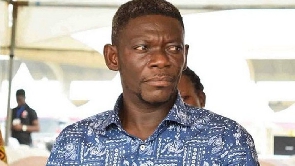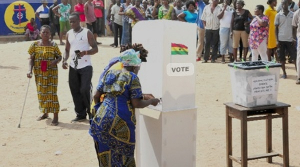Regional News of Thursday, 12 April 2012
Source: GNA
Environmental association organises workshop on waste management
The Environmental Service Providers Association (ESPA), has organized a sensitization workshop on the new Polluter Pay Principle (PPP), in Accra om Wednesday.
The event was on the theme: “Supporting a Sustainable National Waste Management Financing Strategy; for Ghana-Polluter Pay Principle is the answer.”
Mr D.K Twerefou, Senior Lecturer, University of Ghana, explained that, the PPP was a civil and social act that would enable economic agents as well as individuals to pay for waste they produce daily.
He said the initiative would provide the opportunity for waste generators to contribute to sustainable financing of waste management and generate additional revenue for environmental management.
Mr Twerefou said: “Over the years, budget for financing waste is very high, and so the private sector must come on board to support waste management in order to reduce the burden on Government.
“It is to internalise pollution-related cost within the contest of the economic rationality of the enterprise.”
Mr Twerefou said, the charge or levy would be based on the quality and quantity of pollution discharged into the environment, and it would also entail levying taxes on goods and services based on their potential effects on the environment.
He said: “The initiative would help reduce pollution, provide incentive to control and clean pollution, including waste management, recycling, reuse as well as recovery of waste.”
Mr Twerefou said it would discourage the importation of over aged goods, prevent the use of Ghana as a dumping ground for unwanted goods and improve the quality of the environment.
He said the principle would also make it simple to improve and maximize the domestic tax unit of the Ghana Revenue Authority.
Mr Twerefou, said the PPP would also encourage people to become environmentally conscious and that information base, administration capacity, legal structures, and political feasibility would be paramount in the use of the PPP.
Naa Lenason Demedeme, Director, Environmental Health and Safety Unit, noted that Ghana produced 13000 tons of waste daily, but lacked waste management infrastructure.
He appealed to Government to support assemblies to build more facilities such as engineering land field sites to manage waste.
Naa Demedeme said, the PPP was expected to improve the level of sanitation from 14 per cent to 54 per cent by 2015.
Captain Fredrick Amoh-Twum (rtd), Project Coordinator of ESPA, said the PPP was initiated in 2006 by the association to support Ghana’s waste management sector by sensitizing the public to reduce the quantity of waste produced.**









